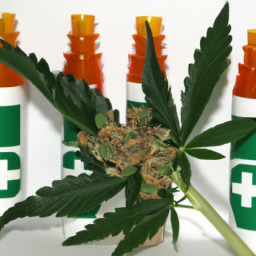As the legalization of both medical and recreational marijuana continues to spread across the United States, the debate over the addictive potential of the substance remains a contentious issue. A growing body of research indicates that while marijuana may not be as addictive as substances like opioids, alcohol, or nicotine, it is not without its risks.
As a member of the Congressional Cannabis Caucus, Joyce and other members of the caucus work towards expanding access to treatment for addiction, particularly in relation to opioids. Former Mayor Mike Bloomberg, however, slammed New York's marijuana law as a dangerous move, citing the potential for the addictive and lethal fentanyl being laced with illicit marijuana. This highlights the differing opinions on marijuana's role in addiction.
Another study focused on the level of cannabis use and its potential impact on post-operative outcomes. The study found that surgical patients with addiction issues may be at greater risk for complications, raising further concerns about marijuana's role in addiction.
Pennsylvania Attorney General Josh Shapiro revealed his push for the retail sale of marijuana in his state, despite acknowledging the potential links between psychosis and addiction with high-potency marijuana use. On the other hand, medical marijuana legalization bills have faced opposition in the past due to warnings that cannabis use could become addictive and lead to the use of more harmful substances.
A shift in attitudes towards addiction treatment is evident as younger people enter the medical profession, particularly in the context of the opioid crisis. This has led to a greater willingness to explore alternative treatments, including the potential benefits of marijuana in treating addiction.
As Minnesota moves to legalize adult-use marijuana, Ricardo Baca, a cannabis industry expert, argues that while cannabis is an addictive substance, it is nowhere near as addictive as other legal substances, such as alcohol or tobacco. This viewpoint suggests that the risks associated with marijuana use should be considered in the context of other, more harmful substances.
The debate over marijuana's addictive potential should also take into account the variety of substances that fall under the umbrella of marijuana or cannabis products. This includes kratom, a plant-based substance with opioid-like effects, and fentanyl, a synthetic opioid that is far more potent and dangerous than marijuana. Addiction is defined as compulsive use of drugs despite negative consequences, and these substances may have different levels of addictive potential.
One notable case that illustrates the complexity of marijuana and addiction is that of Catherine, a young woman who struggled with substance abuse issues, including marijuana. Catherine saw doctors and was hospitalized multiple times, with her parents seeking addiction treatment at Hazelden, hiring an 'interventionist,' and exploring various recovery options.
The debate surrounding marijuana and addiction is multifaceted and cannot be reduced to a simple binary of addictive or non-addictive. It is crucial to consider factors such as individual susceptibility to addiction, the potency of the marijuana in question, and the potential for marijuana to be used as a gateway to more harmful substances.
Furthermore, as more states legalize marijuana, it is essential to prioritize education and prevention efforts to minimize the potential risks associated with marijuana use. This includes providing resources to help individuals understand the possible consequences of marijuana use and addiction, as well as ensuring access to appropriate treatment and recovery services.
In conclusion, the relationship between marijuana and addiction is complex and requires a nuanced approach that takes into account the various factors at play. As the legal landscape surrounding marijuana continues to evolve, it is essential for policymakers, healthcare providers, and individuals to stay informed and make evidence-based decisions regarding marijuana use and addiction treatment.
